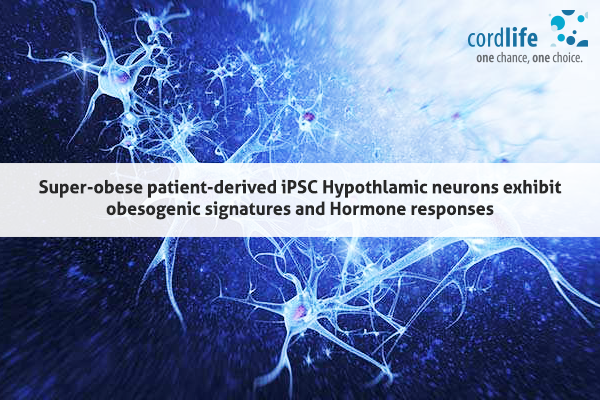Obesity is a growing concern for the upcoming generation, and it has been a leading health problem for people across the world for many years now. Most surprisingly, we did not have any potential therapeutics to ward off its complications, adding to our woes and dilemma.
The reasons could be a lack of transparent methodical procedures to find its etiologies as well as pathophysiologies.
As per a new study, obesity is the result of neural functions, which monitors a signal between hunger and satiety. The first time ever revelation could lead to a better evaluation of experimental therapies for obese patients, and find them better results with just the right kind of treatment.
Scientists at Cedar Sinai have reprogrammed brain neurons of patients with obesity using iPSC hypothalamic Neurons. These lab grown new neurons are promising to aid in the development of specific treatment procedures for the patients with specific symptoms by gauging the functions of brain in obese individuals.
The inclemency of obesity does not need much description to explain its characteristics towards the sufferers. If statistics are to be believed, a huge U.S population is suffering from this debilitating disease. They are more prone to suffer a cardiac attack, glucose complications, strokes and different types of cancers. That apart, the young generation is at a higher risk, and there is a growing concern for childhood obesity too, hindering the next generation from leading a better life.
How The Study Proved An Influence Of The Brain On Obesity?
It is the hypothalamus region in the brain, which controls the feeling of hunger and fullness using neurons by integrating endocrine signals. This is what the new study has concentrated, and shed light on the causes of obesity. Apart from monitoring hunger and fullness of the brain, it is linked with the regulation of the body temperature and other physiological functions.
Partly, obesity occurs due to the genetic mutations in the specific hypothalamic neurons. The metabolic procedure is also regulated by these neurons. In addition, these neurons help ease the communication process between the brain and gastrointestinal tract. When there is a malfunctioning of these neurons, it triggers a problem, making it tough for us to differentiate between the feeling of hunger and satiety. So, with no proper sense of self food need, our brain is likely to chomp too much food without any signal, resulting in overweight.
Since, it is not possible to carry the study on living patients, scientists turned to iPSC technology to assess the efficacy of the study.
Process of The Study
Scientists collected blood and skin specimens from five super obese people with a BMI of 50 or more, while seven individuals of normal weight with a BMI of 25 provided their samples too. These cells were then coaxed to produce induced pluripotent stem cells as they have the potential to develop into any cell types in the body, and finally they were manipulated to transform into hypothalamus neurons. The produced stem cells had the same genetic expressions as the donor cells.
There was a huge difference between iPSCs derived cells from the obese and normal individuals. The obese cells were found to contain numerous genetic mutations, and they did not respond in compliance with the hormones responsible for monitoring a series of functions like hunger, satiety and metabolism.
The study proved how iPSCs could be the potential tool to examine the etiology of obesity. Therefore, it is possible to influence the chemical signal between the genes and environment to influence its occurrences.
However, as of now, there is only one hurdle to create a connection among gut, liver, pancreas and other organs like human hypothalamus neurons, which is largely missing with the lab grown iPSCs. We are hopeful that studies will be successful to remove that hurdle too, and create an advanced therapeutic for obesity in the future.
